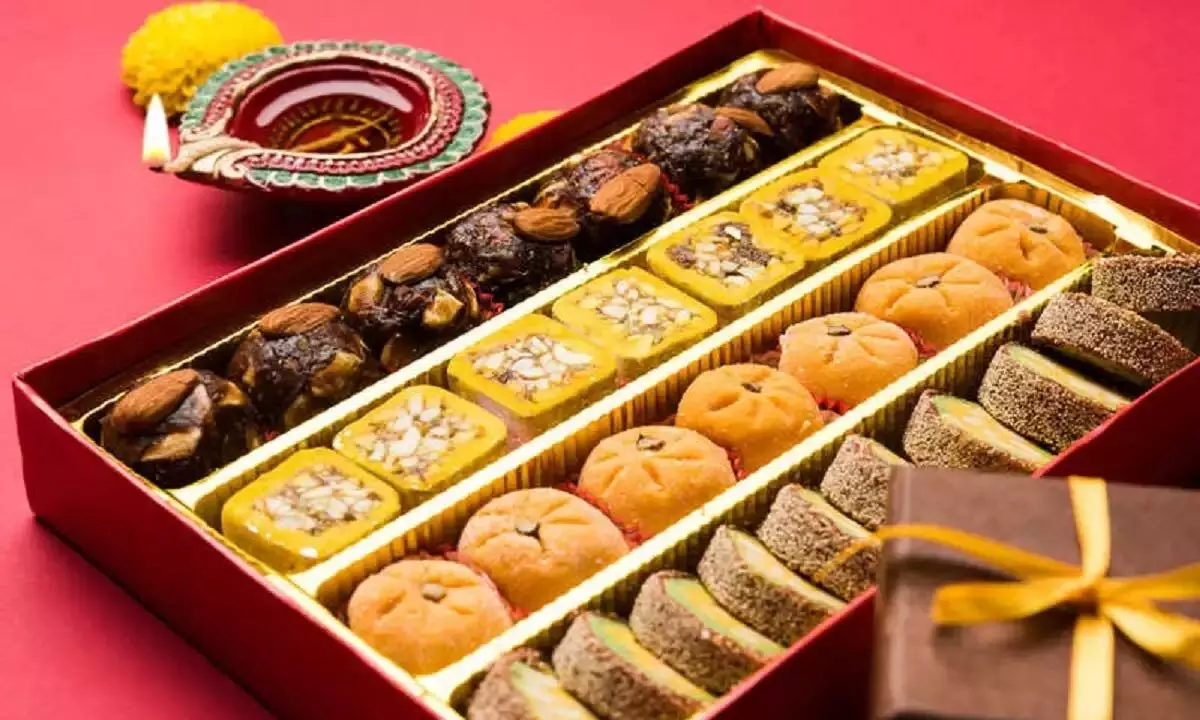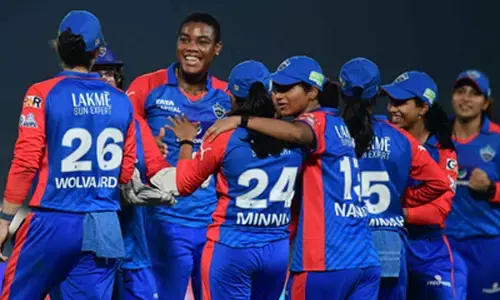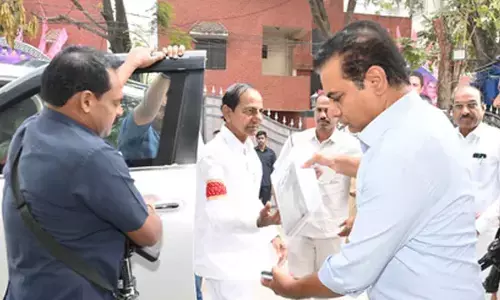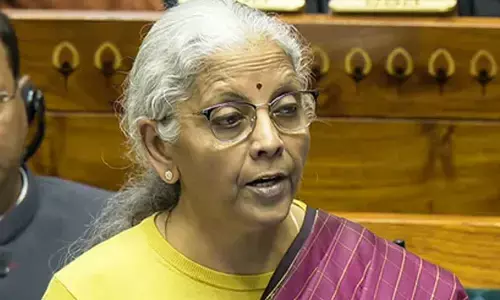Diwali Gift Dilemma: Indian Sweets or Chocolates?

As the festive season of Diwali approaches, local confectioners are gearing up for their production schedules and choosing the right packaging materials
Bangalore: As the festive season of Diwali approaches, local confectioners are gearing up for their production schedules and choosing the right packaging materials. With their orders nearly secured, it seems like smooth sailing in the market. However, there's an emerging competition on the horizon that could potentially lead to an oligopolistic situation. This new contender is none other than chocolate, and with liberalized imports, it poses a significant threat that could snatch a substantial market share from traditional Indian confectionaries.
But here's the real question: Will the Indian sweet tooth willingly embrace foreign chocolates over our aromatic and culturally rich delights like Champakalis, Pedhas, Laddos, Soan papdis, and Raj Bhogs, to name just a few? "Yes, we acknowledge that chocolate is a formidable competitor, but I don't believe it can replace traditional Indian sweets on the Diwali menu – be it for gifting or consumption. It's amusing to see chocolate companies heavily promoting their products as Diwali gifts, but they can't match the allure of Indian sweets, each with its unique taste, texture, and ingredients like ghee, khova, kesar, pista, badam, and cashews," says Arvind Agarwal of New Arya Bhavan Sweets in Bangalore.
In Bangalore alone, the traditional sweets market boasts a business worth Rs. 100 crores during the Dasara and Diwali season. Many corporates, businesses, and families take pride in sending sweet boxes filled with these delicacies. According to rough estimates, the chocolate business during the same period is negligible when compared to traditional Indian sweets. However, the new generation of businessmen and corporates consider sending well-known Swiss chocolate brands as a "classy act" to their clients, customers, and associates, seeing chocolate as a status symbol.
Sudhakar Shetty, a hotelier in Mangalore, points out, "What we see in TV ads doesn't reflect reality. We haven't reached a point where relatives visit us with a box of chocolates for Diwali; instead, they come bearing special Mysore pak or Kesar Pedha."
Gifting during Diwali has seen a shift towards dry fruits in addition to sweets and chocolates. While this trend is relatively new in the South, the North has a history of incorporating dry fruits into Diwali gifts, dating back at least a century, if not to the time of the Mughals. Health-conscious individuals prefer to gift healthy, low-cholesterol items to their loved ones during the festival, such as dry fruits.
However, the most significant segment remains the homemade Diwali sweets. Families come together to make laddos, burfies, and sweets with a longer shelf life, which they then distribute to their neighbors. Girija Nayak, an entrepreneur specializing in homemade confectionery, explains, "Each household ends up with a generous platter of sweets from their neighbors, with each spending a substantial amount, resulting in a similar value of sweets exchanged. Homemade items include Basen Laddoos, Nevris, Malpuas, coconut burfi, cashew Katlis, and Mysore pak."
This observation is supported by market data, indicating that the consumption of ingredients like ghee, skimmed milk powder, condensed milk, icing sugar, powdered sugar, cardamom, nutmeg, raisins, cloves, and broken cashews triples during Diwali, as these are essential components for preparing traditional Indian sweets, according to Abdul Rehman, a wholesale spices trader at Mandi Mohalla in Mysore.














